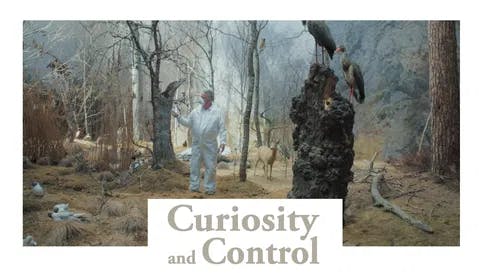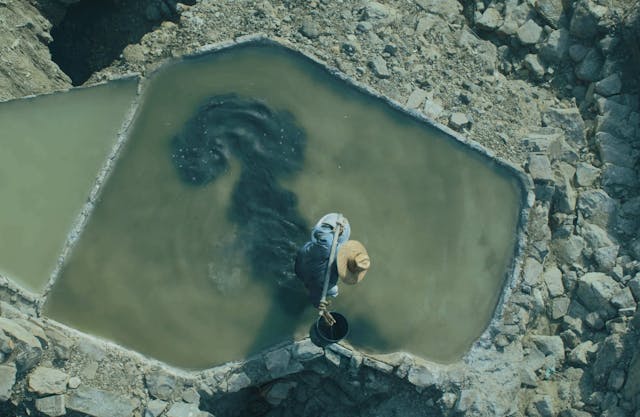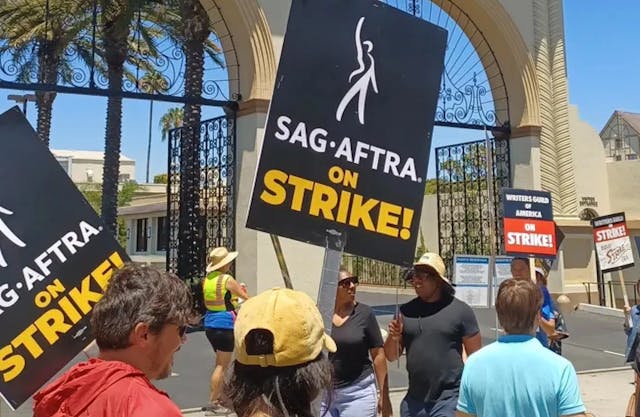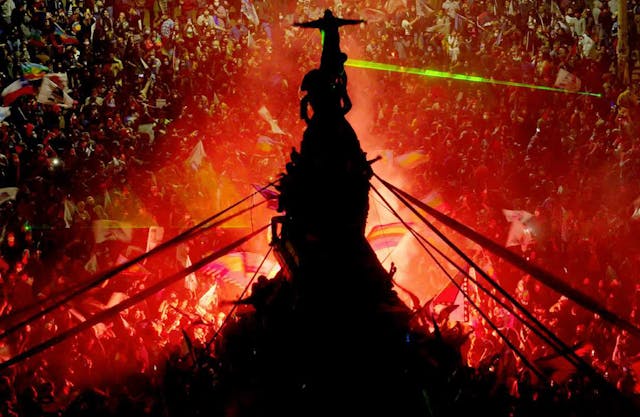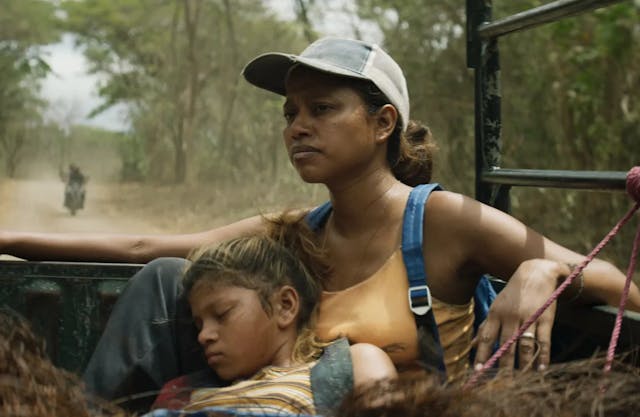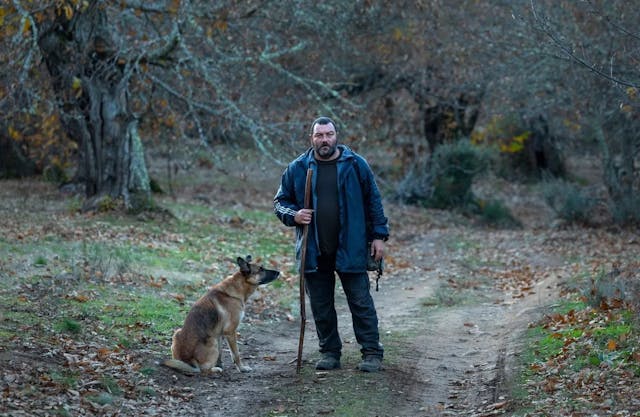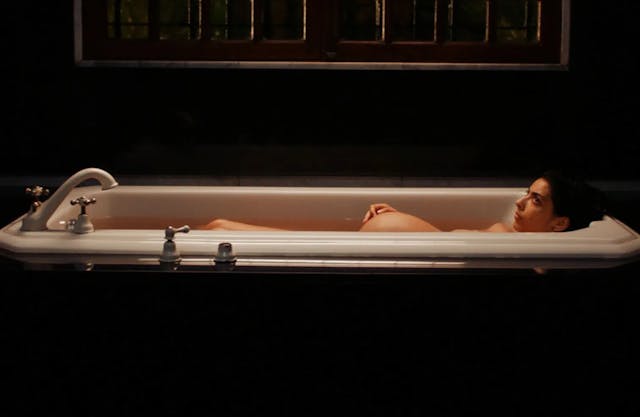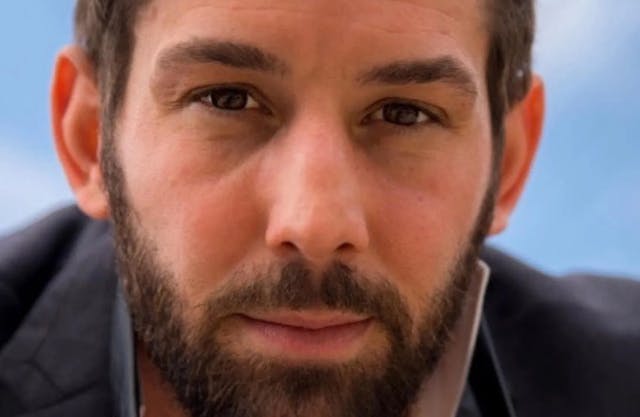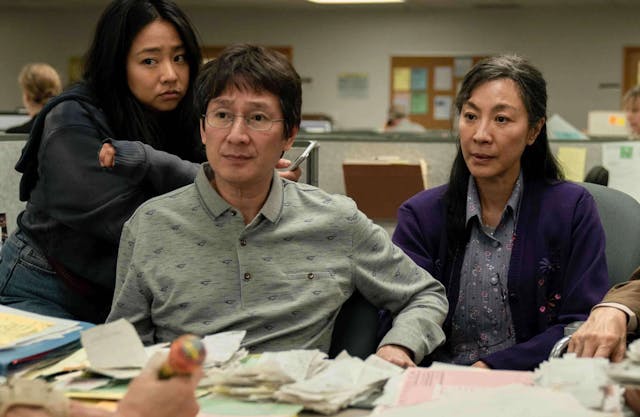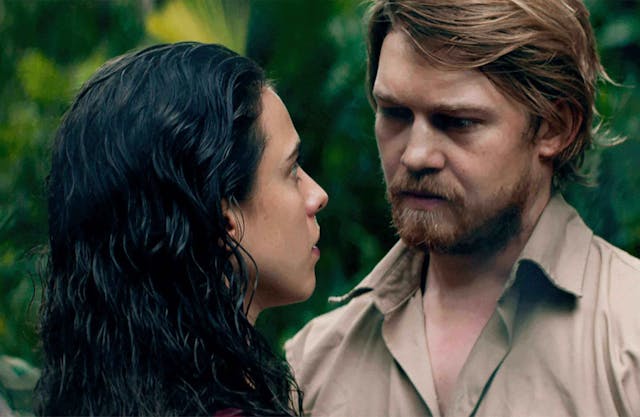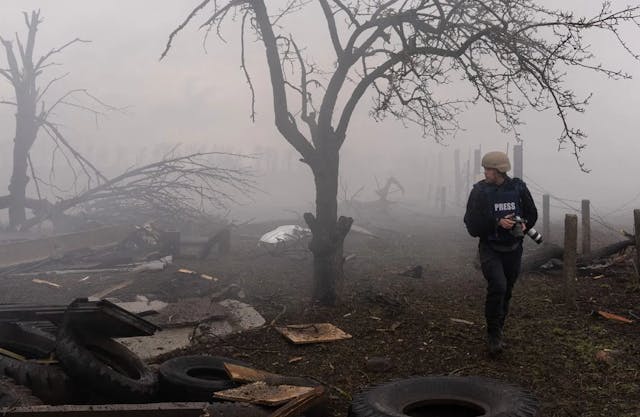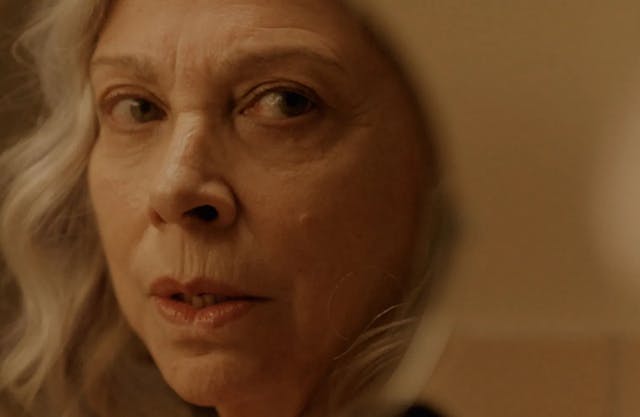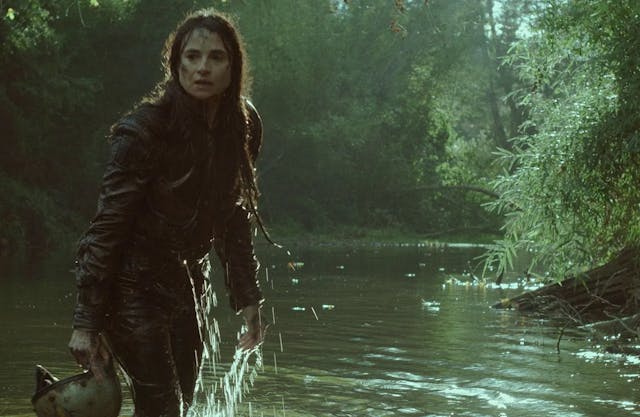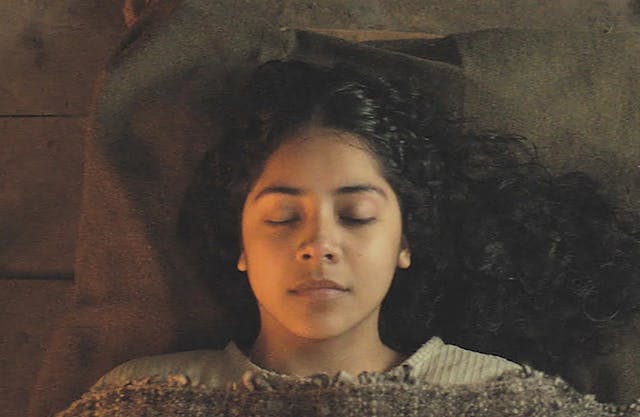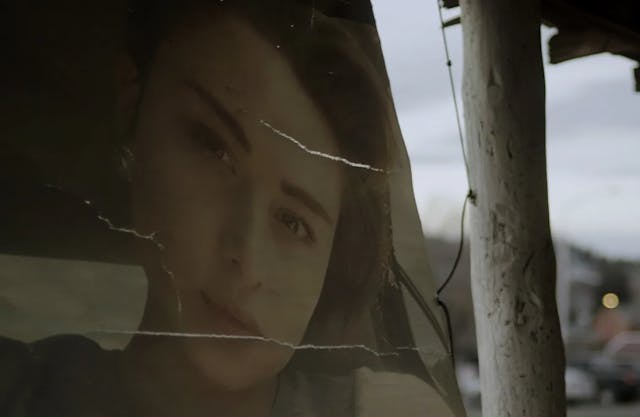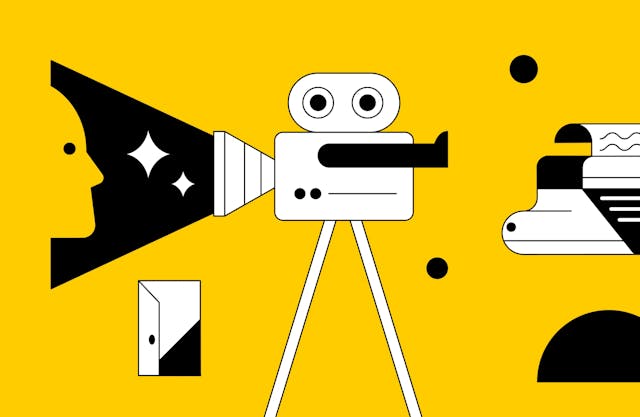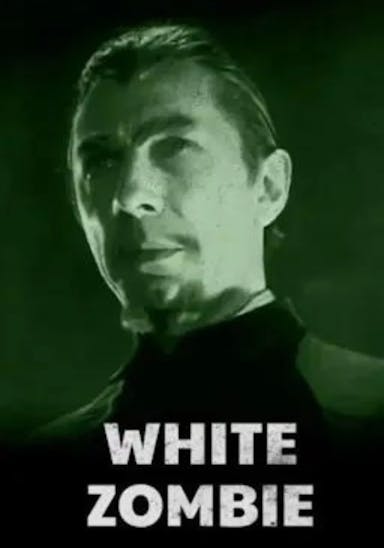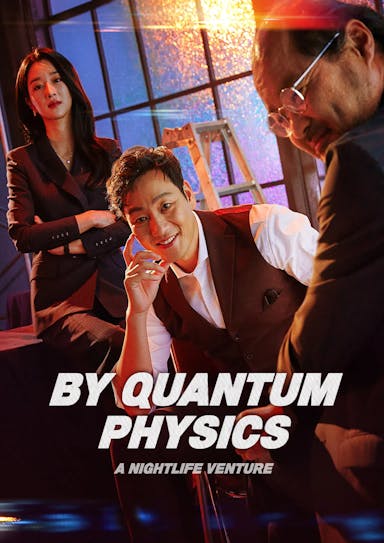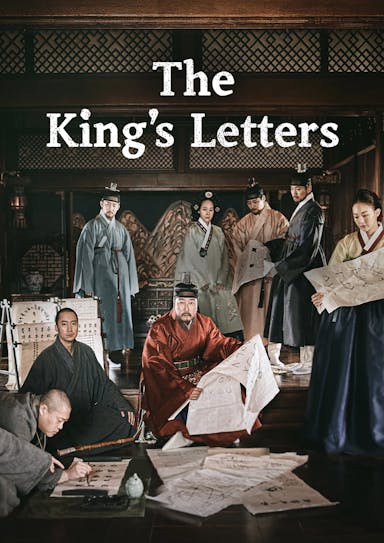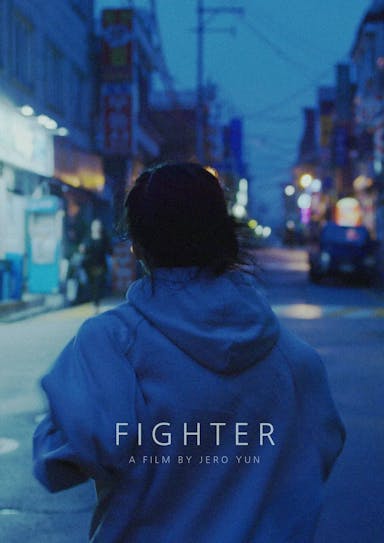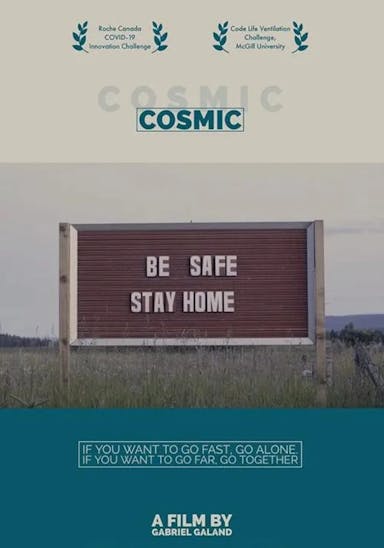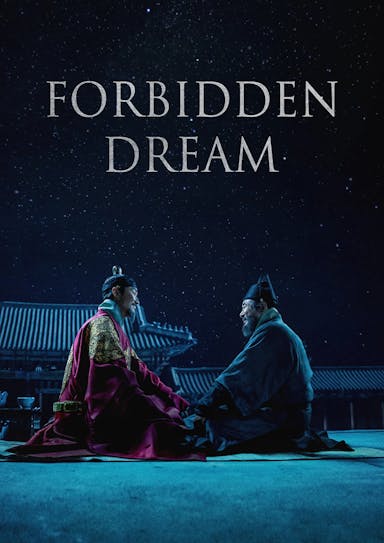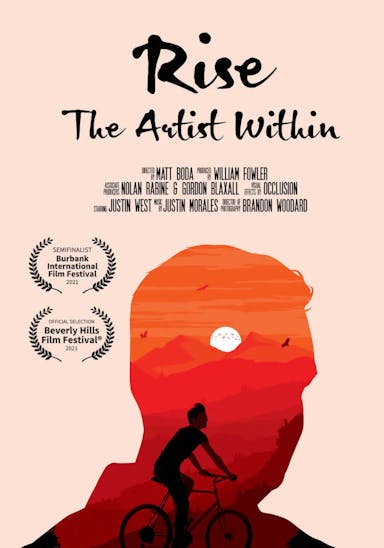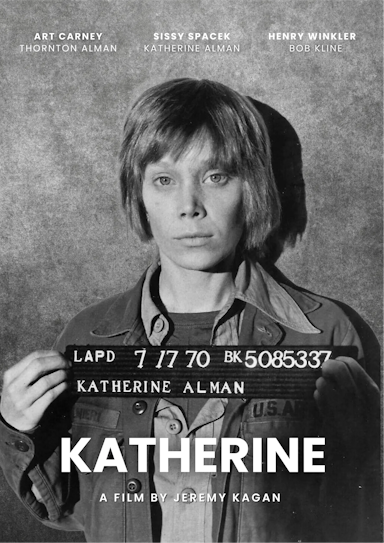"The Battle of Chile": The Epic Documentary Returns To The Art House
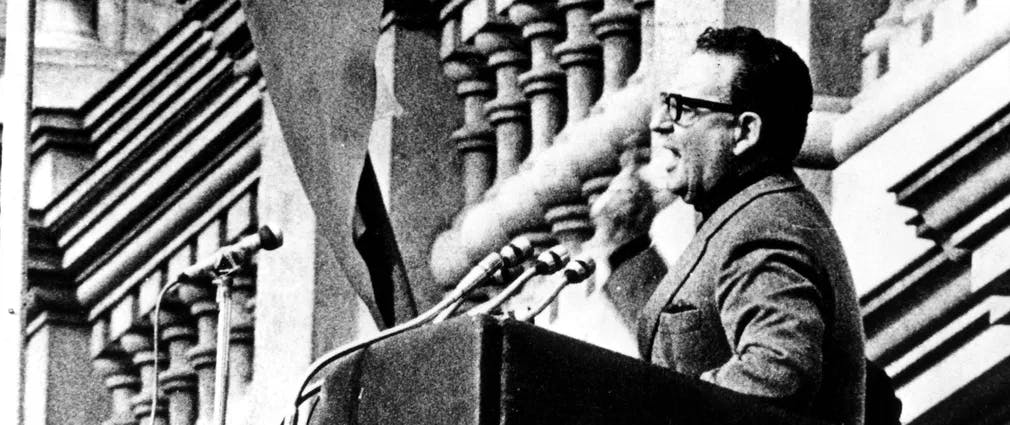
Salvador Allende gives a fiery speech before the coup in "The Battle of Chile" / Photo courtesy of Icarus Films.
Patricio Guzman has a lot to celebrate. He arrives at his 80 years recognized as a major filmmaker. Icarus Films spent five years restoring his masterpiece, “The Battle of Chile”. The cycle of three feature-length documentaries is the cornerstone of a virtual retrospective of his works, including his latest, “My Imaginary Country” (2022). His most recent film looks at the attempt of a left-leaning coalition headed by newly elected president Gabriel Boric, trying to reform the country’s constitution. We reviewed the movie upon its release in the US. When it hit American screens, it was already a time capsule: most Chileans voted against the ambitious political project. It was not the first time that a progressive politician found his ambitions dashed. But at least, for once, the disappointment was not tinted by violence.
Recording History on the Run
Guzman started working in the late Seventies, documenting a pivotal moment in Chilean history. Newly elected president Salvador Allende pushed a socialist agenda to transform the country. In contrast to transformative processes in the Soviet Union and Cuba, this was supposed to be an institutional transition executed through the powers of the state. His revolution would be civil. There would be no Bolshevik massacres nor massive exodus of citizens labeled “enemies of the revolution.” Alas, the status quo did not take kindly to his plans. The right-wing opposition unleashed every legal play in the book to stall the process, while citizen groups on opposing sides showed their force in the streets. In full communist fashion, the state seized control of the means of production. They took over private factories and businesses and ceded their control to workers.
The filmmaker was close to Allende, which allowed him privileged access to the president and his inner circle. He follows him from crisis to crisis and records him giving exalted speeches at massive public manifestations. It’s not by chance that he sounds like Fidel Castro. For a while, almost every Latin American socialist leader - and dictators - emulated him, from Allende to Venezuela’s Hugo Chavez.
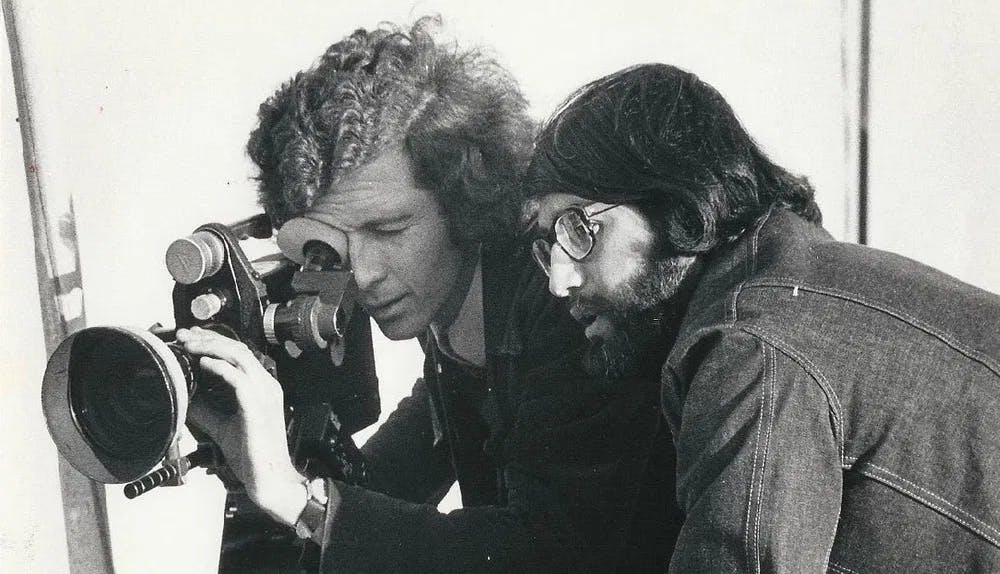
Director of Photography Jorge Muller and Director Patricio Guzman shooting "The Battle of Chile" / Photo courtesy of Icarus Films.
Guzmán's camera strays to document how Chilean society lived in these convulsed times. Like a TV reporter, he knocks on doors, asking people's opinions about how they think the latest election will go or who they voted for. An interview with a rich woman in her comfy apartment takes a turn. From her doorstep, she gives brief responses to the men. Soon, she invites them in and starts fluttering all over her gaudily decorated apartment. It is disconcerting until you realize she is looking for the best spot to make herself look good. While this happens, the cameraman roams around, taking in the space. It feels like it is deliberately avoiding her. There is more to know about the woman and her standing in society through the abundant things that fill her rooms.
This creative choice is recurrent throughout the three films. It’s par for the course with the ideology the filmmakers share. You might keep hearing a single person, but what matters is the collective. A person might speak, but the focus of interest is on the crowds and things. The other side of the coin is the obsessive attention to material conditions, whether in abundance, like the rich woman’s apartment, or the poverty of shantytowns and crowded assemblies. The contrast tells you everything you need to know about the abyss that separates the few rich from the impoverished majorities. Latin-American feudal pseudo-capitalism sowed the seeds from which its arch-enemy emerged. Would communism take hold of the collective imagination if people were not so desperately poor?
Crystal-Clear Politics
“The Battle of Chile” cannot be accused of “both-sides-ism.” Guzmán is firmly in the corner of Allende and the socialist project. He never questions the goals and the methods of the Allende government. He doesn’t give an inch to the right-wing and its militants. When they start using the same struggle methods of the left, like staging massive demonstrations or setting up a public transportation strike, he says they do it because they are being “manipulated by imperialism.” And can you blame him? No amount of overreach can justify the brutal crackdown just around the corner. We know what happened when a military junta executed a bloody coup d’etat.
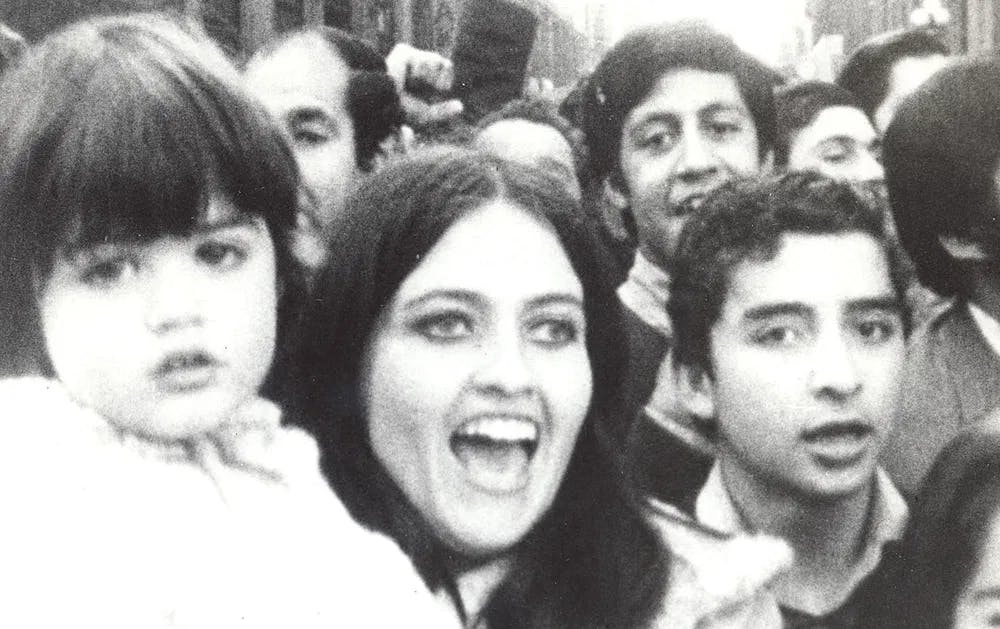
Focus on the masses: a throng of people participate in a demonstration in support of Allende in "The Battle of Chile" / Photo courtesy of Icarus Films.
This knowledge gives the first two parts of “The Battle of Chile” the pulse-pounding tension of a thriller. Eventually, Guzman was kidnapped, tortured, and held in the National Stadium, converted by the military into a massive jail. He was lucky. After ten days, he was released and allowed to go into exile. Augusto Pinochet held power through a military junta and installed a terrorist regime. The Retting Commission of Truth and Reconciliation and the Valech National Commission on Political Imprisonment and Torture recorded chilling numbers: 2,279 executions, 27,255 tortured, and 200,000 exiled. Pinochet was expelled from power by peaceful methods through a 1990 referendum.
The Chilean Tragedy in Our Collective Imagination
The tragic story of Chile is fertile ground for political cinema. Check out Costa-Gavras's “Missing” (1980), with a mature Jack Lemmon desperately looking for his disappeared son as the military crackdown rumbles through the country. The movie was nominated for 4 Academy Awards and won Best Adapted Screenplay. It is available in home video via The Criterion Collection. If you want some homegrown drama, look for Manuela Martelli's “Chile ’76” (2022) following an oblivious bourgeois woman helping a persecuted student leader in the aftermath of the coup. It might as well be one of the best fiction movies of the year.
In 2002, an international group of filmmakers worked on "September 11," an omnibus film to memorialize the 9/11 terrorist attack against the US. For his contribution, British filmmaker Ken Loach made a short documentary about that other tragic September 11. Yes, it was September 11, 1973, when the tanks rolled down the streets of Santiago, and the Air Force bombed the presidential palace with the constitutional president resisting inside - later, independent investigations concluded Allende died by a self-inflicted gunshot -. Loach's provocation may seem facile, but it hints at a never-ending cycle of violence that crosses borders.
The involvement of the CIA remains a dark spot in the record of the United States. Perhaps the high political costs the US paid for meddling in the affairs of other countries contributed to its hands-off policy towards Latin America. Then again, when you watch "The Battle of Chile" now, you can't help but detach from its commitment to the socialist project. Forty-four years after the third and final part was released, we have seen socialist governments in Latin America achieve power by elections, only to root themselves in power and demolish democratic institutions, just like the old-fashioned right-wing military tyrannies from the '60s and '70s.
The Dream Rots on The Vine
The Castro regime survived Fidel and probed up dictatorships in Venezuela and Nicaragua. It’s impossible to know what would have happened if Allende had not been able to fulfill his presidential mandate and remain a player in Chilean politics. Would he have turned as bad as Hugo Chávez, Nicolas Maduro, and Daniel Ortega? Would he have found a way to transform society by democratic measures? If anything, he is guilty of hubris. He wanted to do too radical a change, too fast. He overplayed his hand. Yet, the language you hear in “The Battle of Chile” is the same we heard in Cuba, Venezuela, and Nicaragua as recently as yesterday. Full disclosure: I am a Nicaraguan journalist in exile.
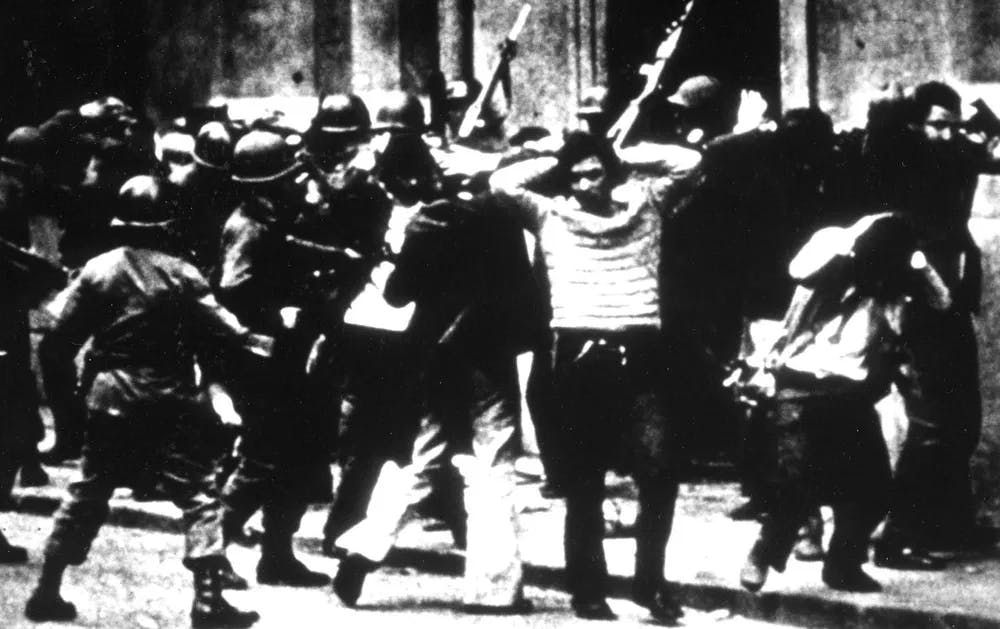
Army unleashed: soldiers violently detained thousands of civilians in "The Battle of Chile" / Photo courtesy of Icarus Films.
No matter where you stand in the political spectrum, "The Battle of Chile" is a fascinating document of its time. It's visually arresting. The hand-held camera gives everything you are there immediacy. The high-contrast black-and-white filmography is a prime example of Third Cinema Wave aesthetics in Latin America. Bear in mind that the third part is something of a letdown. It rehashes material and events covered in the two previous films, going in-depth into the minutiae of workers' organizations taking over factories and stores. This is where the propaganda becomes unbearable. Guzmán completed the post-production of his films in Cuba, and you can feel the heavy hand of the "compañeros" in the discourse. Still, you get some visual moments of grace, like a magical shot of a man who seems to be gliding over concrete as he pulls a cart full of metal scraps at the break of dawn. Is it idealized poverty? Perhaps. You can still find poverty thriving in the "revolutionary" utopias of our times. Still today, they blame "The Empire."
Now, tell me, where are these valuable documents of this historical chapter being restored, promoted, and exhibited for all to see? Where is the filmmaker celebrated and recognized for his artistic and historic merits? Well, in "The Empire." Cuban, Venezuelan, and Nicaraguan journalists and artists suffer persecution, kidnapping, torture, and exile just for sharing information and ideas. The irony is rich. Forget utopia. How do we get democracy and freedom, for real? There are no answers in "The Battle of Chile," just a stern warning about how easily the system can be destroyed. See it as a cautionary tale. And if you are a movie buff, you must check this three-part opus as a prime example of black and white movies as an excellent medium to capture real life.
Watch “Curiosity and Control”
A documentary that explores our complex relationship with nature itself and our contradictory behavior of caging what we fear may be lost.
Stream NowWant to get an email when we publish new content?
Subscribe today